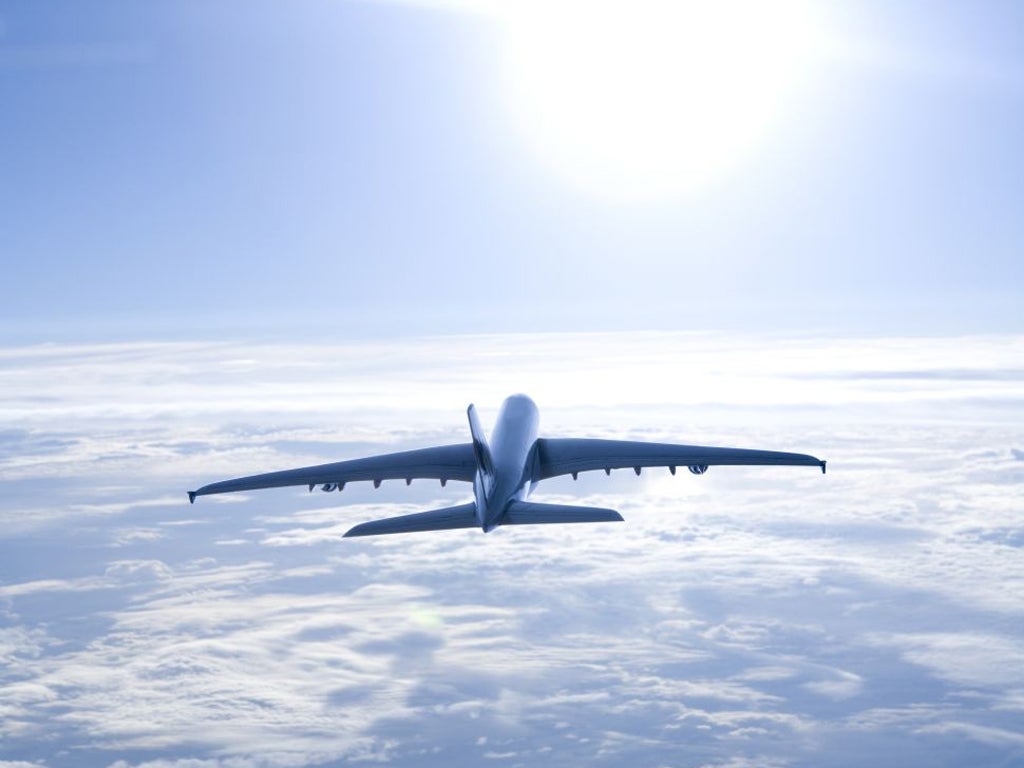The Great Debate: Do we need another airport to keep London in the top flight?
Environment Editor, Michael McCarthy, and Travel Editor, Simon Calder, discuss the key issues

Your support helps us to tell the story
From reproductive rights to climate change to Big Tech, The Independent is on the ground when the story is developing. Whether it's investigating the financials of Elon Musk's pro-Trump PAC or producing our latest documentary, 'The A Word', which shines a light on the American women fighting for reproductive rights, we know how important it is to parse out the facts from the messaging.
At such a critical moment in US history, we need reporters on the ground. Your donation allows us to keep sending journalists to speak to both sides of the story.
The Independent is trusted by Americans across the entire political spectrum. And unlike many other quality news outlets, we choose not to lock Americans out of our reporting and analysis with paywalls. We believe quality journalism should be available to everyone, paid for by those who can afford it.
Your support makes all the difference.Simon Calder Despite our lamentable lack of airport strategy, London is a far bigger hub for air travellers than any other city in the world. How do we remain the aviation capital of the world? By building. The Heathrow argument is effectively over as all three major parties oppose a third runway. Enough spare capacity remains at Gatwick, Stansted, Luton and London City to soak up another decade of growth. But to continue our supremacy beyond that, we need the concrete.
Michael McCarthy Your argument ignores the fact that climate change places a constraint on aviation's unstoppable growth. Carbon emissions from aircraft, which are the fastest-growing of all CO2 emissions, may well be legally limited by future climate treaties; they will certainly have to have a ceiling if Britain is to meet the commitments it has already taken on, of cutting UK CO2 by 80 per cent by 2050.
You can't fly on elecricity; flying will always produce CO2, and we'll only be allowed to emit so much of it. Expand our airport capacity all you like; you won't be able to expand the flights to take it up.
Simon Calder Oh yes I will. First, fancy a bet on Britain meeting that 80 per cent target by 2050? If we do, I'll buy you a week in New York; if we don't, a day trip to York (by high-speed train), for me. This government's long-term plans and its environmental commitments are wholly incompatible, as demonstrated by the Prime Minister's apparent backing for "Boris Island".
Yes, we should cut emissions from aviation – but we can do that and increase flying, so long as inefficient, dirty and noisy jets are replaced by the new generation of aircraft. Government action is certainly needed: to tax elderly and filthy planes out of the sky.
Michael McCarthy You now seem to be arguing that climate change is starting to matter less, so we can bother about it less in framing economic policy. Global warming might have dropped down the political agenda during the recession, but the problem is only going to get worse, as the CO2 we are shoving into the atmosphere each year increases from the current 33 billion tonnes at an annual rate of 6 per cent.
Unless the laws of physics are suspended, this is going to heat up the atmosphere drastically, and as the effects become more apparent, the pressure to cut CO2 emissions will be far greater. A sensible future aviation policy would take this into account.
By the way, by 2050 I will either be long dead or being wheeled into a day room to watch telly, so why not bring your week in New York bet forward a little?
Simon Calder I'll pay up if Britain can cut 25 per cent by 2022 – which, coincidentally, is when the pragmatic alternative to a Thames Estuary airport will open, in the shape of a second runway at Gatwick.
Building a completely new facility is the Asian solution for crowded metropolises (Hong Kong, Osaka, Seoul) but we have neither the money, the will nor the need to create a sixth London airport. I suspect the Government's current display of interest in Boris Johnson's plans may be a convenient way of kicking the airport debate into the long grass (or the Thames Estuary mud) until the HS2 row has simmered down.
A second runway at Gatwick will meet minimal local opposition, bestow London with an alternative hub to Heathrow, and see us through another generation – by which time high-speed rail will hopefully have eclipsed air for most journeys in western Europe. The alternative: years more of planes stacking for Heathrow, the most wasteful and damaging face of aviation.
Join our commenting forum
Join thought-provoking conversations, follow other Independent readers and see their replies
Comments